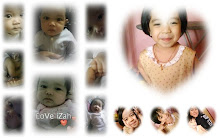As i have few adopted cousin, I like to read about adopted thing. I wondered when and how my aunts will manage to tell them the truth. Their presence are miracle in our family.Opening your heart and your home to an adopted child is an exciting and wonderful experience. Although people adopt a child for different reasons, the purpose is the same: to give a special child the care, love and attention he or she will otherwise not receive from his own family. But then when the time comes for the child to learn more about himself and his history, most adoptive parents become confused and uncertain. When do they tell and how? Better yet, should they?
If you are an adoptive parent to a wonderful child and are considering about telling your child about his history, here are some things you need to know:
You should tell.
Most experts agree that adoptive parents should inform the child that he or she was adopted. Keeping it a secret or allowing the child to discover it on his own may have a negative impact on your relationship as a family and on the child's emotional state. In fact, waiting for the child to be older or to become an adult in order to tell him about his history could upset his sense of security.
It is even worse if your child learns of his adoption from somebody else. This will not only come as a shock, it might also cause the child to feel betrayed, having been left in the dark for so long and believing a totally different image of himself. Furthermore, it is your responsibility as an adoptive parent to inform the child of his past in the same way as you owe it to a biological child to tell him about your family's history.
When do you tell?
As to the right time to tell the child, there are two opposing views about this matter. Some child experts recommend that adoptive parents tell their child as early as possible so that it is easier for the child to learn about his adoption and accept his circumstances. It is also much easier for the child to embrace the truth if it is something that he grows up with.
On the other hand, there are also experts who recommend that adoptive parents should wait until their child is a little bit older in order to give him the chance to process and understand this new information. These experts believe that older children are more likely to accept and live with their adoption than younger kids.
How do you tell?
Regardless of when you decide to tell your child he was adopted, you should do so in a matter-of-fact way. Don’t put too much fanfare into it or stress the adoption process too much. Parents who try too hard to explain to their adoptive children the whys and hows of adoption often manage to sound apologetic.
Also, don’t tell your child in such a way as to make his adoption seem like a token or a gift that he should work for. Inform your child of his adoption in a loving and protective way by making him feel he was chosen because the parents wanted to take care of him. Try to calm feelings of fear or anxiety in your child during this time.
Be supportive.
Of course, the child will want to ask about his birth mother and father. Be as honest as you can be, but try to treat the subject with sensitivity and understanding. Be supportive and available when the child asks these questions.
You might want to tread lightly on the subject of the child wanting to meet his biological parents. Certain situations may not always allow this possibility, especially if the child's biological parents have expressed no intentions of meeting their child or if there are more sensitive circumstances (parents are in jail, rehab or mental care, etc.). If there is a chance for your child to meet his birth parents, let him know of the possibilities but make sure not to promise him things that are out of your control.
Don’t change anything.
Telling your child that he was adopted shouldn't change anything in your household. Treating him differently or being more careful about your conversations will affect him in a negative way. Don’t make your child's adoption a reason to bestow more attention, especially if you also have biological children.
Best carry on as usual and provide as much love and attention as you have before he was informed. Just because you adopted a child doesn’t mean you love him less and just because he came from another mother doesn’t mean he should have different opportunities and chances. Better yet, once the conversation about his adoption is done, don’t bring it up over and over again. If your child mentions it again, answer his questions but don’t prolong the talk.
When you need help???
It's always best if the adoptive parents can personally tell the child about his history. Having a third party in the conversation may leave the child feeling awkward and vulnerable. After you tell the child he was adopted, try to observe if there are manifestations of ill feelings or a sense of preoccupation on his adoption. If these things happen or escalate, you might want to consider the assistance of a child psychiatrist to help you deal with the situation.





.jpg)








0 comments:
Post a Comment